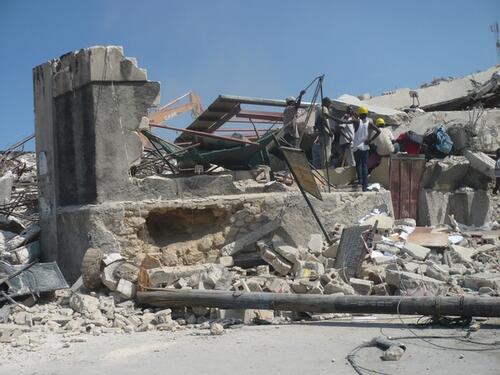Six months after the earthquake that devastated Haiti on 12th January 2010, this report describes the evolution of MSF's work during what is the organisation's largest ever rapid emergency response.
MSF had been working continuously in Haiti for 19 years prior to the earthquake, providing a wide range of medical care from maternity services to physiotherapy and mental health programmes. From this long term involvement, the organisation knew that the health system was out of reach for the majority of Haitians. There was a lack of trained medical staff across many disciplines, from physiotherapy to psychiatry. The country was totally ill-prepared to deal with the medical consequences of such a calamitous natural disaster.
The earthquake destroyed 60 per cent of the existing health facilities and 10 per cent of medical staff were either killed or left the country. MSF had to relocate services to other facilities, build container hospitals, work under temporary shelters, and even set up an inflatable hospital. With over 3000 Haitian and international staff working in the country, MSF currently manages 19 health facilities and has over 1000 beds available at various locations. The organisation has provided emergency medical care to more than 173,000 patients between January 12th and May 31st.
MSF was overwhelmed by the generosity of people around the world providing financial support for the organisation’s response in Haiti. By the end of May, MSF had received over 91 million euros specifically for emergency relief there. Well over half of this money &#– some 53 million euros &#– was already spent in the first five months following the disaster. Our current budgets foresee that around 89 million euros will have been spent on direct assistance to the earthquake victims by the end of 2010.
Six months on, the medical provision for the majority of citizens has been significantly improved in general and some poor people who were unable to access healthcare prior to the disaster are now able to recieve care.
However, the sustainability of this situation depends on continuing international commitment and the question of ensuring quality remains. Shelter remains the most urgent need, with reconstruction moving at a very slow pace and the rainy season compounding the misery. Poor Haitian people are entirely used to limited comfort and resources but MSF staff there report that frustration and anger are rising because too little has changed in the living conditions since the quake.





